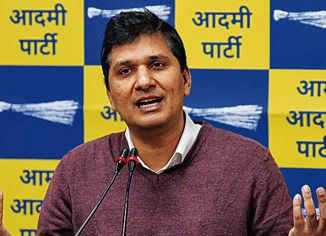
For representation only. File photo
LONDON
While masks are essential in preventing the risk of Covid-19 infections, they can also have a detrimental effect on our ability to socially interact and share other people's emotions, new research suggests.
The study, led by researchers at Cardiff University, found people with facial paralysis, people seeing others who wear face masks, or even children sucking on dummies, could struggle to show empathy or detect positive social cues.
"People tend to automatically imitate others' facial expressions of emotion when looking at them, whether that be a smile, a frown, or a smirk. This facial mimicry—where the brain recreates and mirrors the emotional experience of the other person—affects how we empathise with others and interact socially," said lead author Dr Ross Vanderwert, from Cardiff University's School of Psychology.
"Our study suggests that when the movements of the lower part of the face are disrupted or hidden, this can be problematic, particularly for positive social interactions and the ability to share emotions.
"Wearing a face mask continues to be vital to protect ourselves and others during the Covid-19 pandemic—but our research suggests this may have important implications for the way we communicate and interact," Vanderwert added.
For the study, published in the journal Cognitive, Affective, and Behavioral Neuroscience, the team recorded the brain activity of 38 individuals via an electroencephalogram whilst they watched videos of fearful, happy, and angry expressions, as well as a collection of inanimate everyday objects, as a control.
The participants were asked to watch the videos whilst holding a pen between their teeth for half the videos and without the pen for the remaining videos.
The researchers were investigating, for the first time, the effect this had on a process known as neural mirroring-activity in the motor system for our own actions that is also active observing other's actions. Neural mirroring facilitates simple tasks such as hand-eye coordination and more complex tasks like understanding the emotions of others.
The results revealed that participants who could freely move their face showed significant neural mirroring when observing the emotional expressions, but not the everyday objects.
While the pen was held in their teeth, no neural mirroring was observed when looking at the happy and angry expressions-but it did show neural mirroring when looking at fearful expressions.
— IANS
Join Whatsapp Channel of The Tribune for latest updates.



























